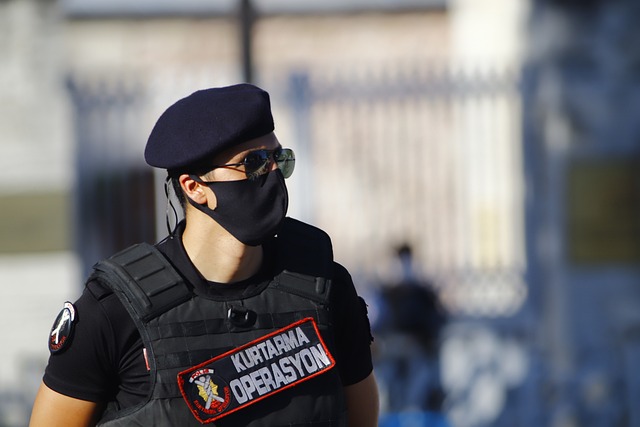Physical security consulting is a proactive service that enhances location safety by implementing access control, surveillance, and intruder detection systems. Regular audits and drills improve staff readiness. In today's digital era, integrating this consulting into incident response strategies is vital for business continuity, minimizing downtime, protecting assets, and ensuring swift recovery through risk assessments, training, and post-incident analysis.
In today’s volatile landscape, effective incident response consulting is crucial for organizations aiming swift recovery. This comprehensive guide delves into vital aspects of disaster preparedness, starting with the foundational role of physical security consulting in strengthening defenses against unexpected disruptions. We explore strategic incident response planning, proactive measures to enhance resilience, and post-incident analysis techniques that refine recovery strategies. By embracing these practices, businesses can navigate crises more effectively and emerge stronger.
Physical Security Consulting: Laying the Foundation for Quick Recovery
Physical Security Consulting plays a pivotal role in establishing the foundation for swift recovery post an incident. It involves assessing and enhancing the security infrastructure of a location to prevent, mitigate, and respond to potential threats effectively. By integrating robust access control measures, surveillance systems, and intruder detection mechanisms, organizations can significantly reduce response times and minimize damage during critical incidents.
Such consulting services also encompass regular audits and drills that prepare staff and stakeholders for real-world scenarios. This proactive approach ensures everyone involved knows their roles and responsibilities, fostering a culture of readiness. Well-designed physical security measures not only safeguard assets but also protect the well-being of occupants, making it an indispensable component in any comprehensive incident response strategy.
Understanding Incident Response: A Strategic Approach
In today’s digital age, incident response has become a critical aspect of business continuity planning. Understanding Incident Response (UIR) involves recognizing that it’s more than just a reaction to an event; it’s a strategic approach to mitigate risks and ensure swift recovery. Effective UIR incorporates both technological solutions and robust physical security consulting, focusing on proactive measures to safeguard assets and minimize downtime.
By integrating physical security consulting into their incident response strategies, organizations can proactively identify vulnerabilities and implement robust defenses. This includes enhancing security protocols, conducting regular risk assessments, and training personnel to swiftly detect and report incidents. Such a comprehensive approach not only accelerates recovery time but also strengthens the overall resilience of the organization against potential threats.
Proactive Measures: Enhancing Resilience Before Disruption
In today’s digital era, where disruptions can strike at any moment, proactive measures are paramount for organizations seeking swift recovery and enhanced resilience. Incident response consulting plays a pivotal role in fortifying defenses against unforeseen challenges. By integrating best practices from physical security consulting, businesses can create robust strategies to mitigate risks and ensure business continuity.
This proactive approach involves implementing security protocols, conducting regular risk assessments, and training staff on emergency procedures. Investing in physical security consulting services equips organizations with the expertise to identify vulnerabilities and deploy solutions before disruptions occur. Through these measures, companies can minimize downtime, protect critical assets, and maintain operational stability, ultimately fostering a resilient environment ready to withstand any crisis.
Post-Incident Analysis: Learning and Improving Recovery Strategies
Post-incident analysis is a crucial step in incident response consulting, enabling organizations to learn from their experiences and improve recovery strategies. By thoroughly examining what transpired during an incident, security consultants can identify gaps, weaknesses, and areas for enhancement within the organization’s physical security measures. This process involves collecting and analyzing relevant data, including security logs, video footage, witness statements, and post-incident reports.
Through this analysis, security experts can uncover valuable insights that lead to more robust recovery plans. They might discover ineffective protocols, technological shortcomings, or human errors that contributed to the incident. By addressing these findings, organizations can implement preventative measures, enhance their physical security consulting, and ensure a quicker and more efficient response in the event of future incidents, ultimately minimizing potential losses and disruptions.
In today’s unpredictable landscape, a robust incident response strategy is no longer an option—it’s imperative. By combining comprehensive physical security consulting with a deep understanding of incident response, organizations can enhance their resilience and ensure quicker recovery times. Proactive measures, such as risk assessments and staff training, fortify defenses against potential disruptions, while meticulous post-incident analysis enables continuous improvement in recovery strategies. Embracing these practices allows businesses to navigate crises more effectively, ultimately safeguarding their operations and securing a brighter future.
